SHIELD faculty members
The scientific interests of the SHIELD faculty members lie in identifying the mechanisms underlying pathogen and tumour elimination (Knapp, Strobl, Sibilia and Winkler), limiting autoimmunity and self-destruction (Bonelli, Stary and Bauer) and the cellular and molecular immune controls thereof (Ellmeier, Sakaguchi, Barozzi and Vogl).
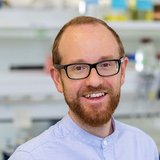
Iros Barozzi
Principal InvestigatorMedical University of Vienna
Center for Cancer Research
T: +43 (0)1 40160-57517
iros.barozzi@meduniwien.ac.at
Website
Iros Barozzi holds a tenure track associate professorship at the Center for Cancer Research (MedUniWien). His laboratory aims at investigating how transcriptional heterogeneity is regulated in a cell-type specific manner, and how this regulation can contribute to cancer progression. IB has great experience in the field of regulatory genomics and mammalian enhancer biology, with a particular focus on inflammation and breast cancer. He has successfully applied machine-learning approaches to infer regulators of innate immune response as well as of resistance to targeted therapies in cancer, at the genomic level.
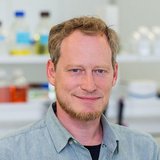
Thomas Bauer
Principal InvestigatorMedical University of Vienna
Center for Cancer Research
T: +43 (0)1 40160-57580
thomas.bauer@meduniwien.ac.at
Website
Thomas Bauer is junior group leader at the Center of Cancer Research (MedUniWien). He joined Maria Sibilias lab for his 2nd Postdoc and in 2020 was promoted to an independent junior PI. His research interest lies in understanding anti-inflammatory mechanisms downstream of receptor tyrosine kinases.
Since his PhD, he specialized in skin immunity and published in high-profile journals such as J Exp Med and Scie Transl Med, for which he received prestigious prices from the ÖGAI and ÖGDV, respectively. Since 2014 he finances and manages his own projects including an international DACH-FWF project.

Michael Bonelli
Principal InvestigatorMedical University of Vienna
Department of Medicine III - Division of Rheumatology
& Ludwig Boltzmann Institute (LBI) of Arthritis and Rehabilitation
T: +43 (0)1 40400-43000
michael.bonelli@meduniwien.ac.at
Website
Michael Bonelli is Associate Professor at the Division of Rheumatology (MedUniWien) and PI at the Ludwig Boltzman Institute (LBI) of Arthritis and Rehabilitation. His research focuses on pathogenesis of immune-mediated diseases. Earlier studies addressed the role of T cells and monocytes as drivers of systemic and local inflammation leading to tissue destruction. His lab also studies the importance of epigenetic modifications during cell differentiation under inflammatory conditions. His lab also works on human and mouse organoid system and arthritis models to understand the role of cell-cell interactions for tissue destruction.
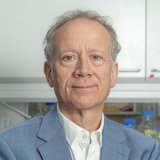
Wilfried Ellmeier
Principal InvestigatorMedical University of Vienna
Center for Pathophysiology, Infectiology and Immunology
Institute of Immunology - Division of Immunobiology
T: +43 (0)1 40160-33293
wilfried.ellmeier@meduniwien.ac.at
Website
Wilfried Ellmeier is Professor of Immunobiology (MedUniWien) and head of the Institute of Immunology. His research interests focus on mechanisms regulating T cell development and function by using mouse molecular genetics tools, autoimmune disease models and state-of-the-art OMICS technologies. Current projects focus (i) on histone deacetylase function in T cell-mediated immunity (Wilfried Ellmeier is coordinating a SFB on this topic); (ii) on transcriptional control of T cell development; and (iii) on the regulation of T cell lineage integrity and peripheral T cell function.
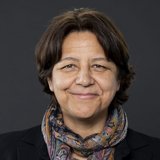
Sylvia Knapp
Principal InvestigatorMedical University of Vienna
Department of Medicine I - Research Division Infection Biology
T: +43 (0)1 40400-51390
sylvia.knapp@meduniwien.ac.at
Website
Sylvia Knapp is Professor of Infection Biology at the Department of Medicine 1 (MedUniWien). She has a long-standing expertise in host-pathogen interactions with a focus on lung immunity and systemic inflammation. Earlier studies focused on the biological importance of modulators of innate immune responses and the influence of preceding tissue damage, hemolysis, or viral infections on secondary bacterial infections. Recently, Sylvia Knapps' lab deciphered the lung’s post-natal immune development and establishment of immune homeostasis, and a novel adaptive role for mast cells.
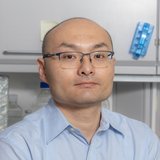
Shinya Sakaguchi
Principal InvestigatorMedical University of Vienna
Center for Pathophysiology, Infectiology and Immunology
Institute of Immunology - Division of Immunobiology
T: +43 (0)1 40160-33297
shinya.sakaguchi@meduniwien.ac.at
Website
Shinya Sakaguchi is junior group leader at the Institute of Immunology (MedUniWien) and became independent after his PostDoc in WE lab. The main research topic of his group is to understand the molecular mechanisms underlying the differentiation of peripheral CD8+ T cells, particularly focusing on transcriptional and epigenetic regulations. Shinya Sakaguchi studied transcriptional network governing CD8+ T cell development in thymus. Recently, his research interest shifts towards T cell-mediated immunological memory, mainly utilizing mouse viral infection models. He has received the Karl Landsteiner-Prize (ÖGAI) and the Sanofi-Aventis Prize.

Maria Sibilia
Principal InvestigatorMedical University of Vienna
Center for Cancer Research
T: +43 (0)1 40160-57501
maria.sibilia@meduniwien.ac.at
Website
Maria Sibilia is Professor for Tumorbiology and the Head of the Center for Cancer Research (MedUniWien). Her laboratory employs GEMMs and patient material to address signaling in tumor and innate immune cells and study their complex interactions in the microenvironment to exploit novel concepts to sensitize tumors to immunomodulatory therapies. She has made major contributions in understanding cell-specific functions of EGFR in inflammation and cancer as well as on the role of pDCs in these processes. Maria Sibilia is the coordinator of the IAI PhD Program and received many awards, like an ERC Advanced Grant, EMBO member.

Georg Stary
Principal InvestigatorMedical University of Vienna
Department of Dermatology
T: +43 (0)1 40400-77660
georg.stary@meduniwien.ac.at
Website
Georg Stary is Associate Professor at the Department of Dermatology (MedUniWien) and Adjunct PI at CeMM. His group studies the cutaneous immune system in health and disease by using different patient cohorts and state-of-the-art technologies to study biologic and pathologic consequences of tissue-resident immune cells (see publications in Immunity, Sci. Transl. Med., Sci. Immunol, J. Exp Med, J Clin Invest). Georg Stary is leading basic, translational and clinical research studies.
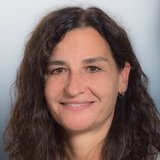
Birgit Strobl
Principal InvestigatorUniversity of Veterinary Medicine Vienna
Department of Biomedical Sciences
T: +43 (0)1 25077-5600
birgit.strobl@vetmeduni.ac.at
Website
Birgit Strobl is group leader at VetMedUni Wien. Her research interests are to better understand how the cytokine signalling components TYK2 and STAT1 regulate the immune defence against infections. BS made important contributions to characterizing the role of TYK2 in inflammation, antiviral defence and NK cell-dependent tumour surveillance. She was the first to characterize kinase-independent functions of TYK2 in vivo, and revealed STAT1 isoform-specific functions in transcriptional regulation and innate immunity to infection.
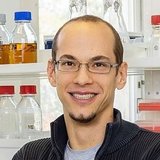
Thomas Vogl
Principal InvestigatorMedical University of Vienna
Center for Cancer Research
T: +43 (0)1 40160-57529
thomas.vogl@meduniwien.ac.at
Website
Thomas Vogl is a junior group leader at the Center for Cancer Research MedUniWien. His research on functional immunomics of the human microbiome combines experimental biology (robotic high-throughput immunoassays) with data science (machine learning, bioinformatics) to gain a holistic view of interactions of the microbiota with the adaptive immune system and how these processes affect human health. He has developed a novel high-throughput antibody profiling technology, and applied it to study the involvement of microbiota in different diseases such as chronic fatigue syndrome (CFS), COVID-19, and nutritional immunology. He has recently been awarded an ERC starting grant.
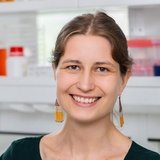
Juliane Winkler
Principal InvestigatorMedical University of Vienna
Center for Cancer Research
T: +43 (0)1 40160-57534
juliane.winkler@meduniwien.ac.at
Website
Juliane Winkler is a Group Leader at the Center for Cancer Research (MedUniWien). The Winkler Lab aims to understand the contributions of tumor heterogeneity on metastasis and metastatic niches using single-cell omics technologies and spatial applications. Her team works at the interface of basic cancer research and computational biology and uses technology-driven systems-oncology approaches that lead to meaningful insights into the complex biology of metastasis. Dr. Winkler is a trained Pharmacist and brings extensive experience from her work at the University of California San Francisco, where she spearheaded the development and application of innovative single-cell technologies to elucidate cellular heterogeneity in both health and disease contexts.
She received multiple awards for her research and mentoring (e.g. EMBO long-term Fellow, AACR Scholar-in-Training Award, Dean’s Award for Excellence in Mentoring, honorable mention).